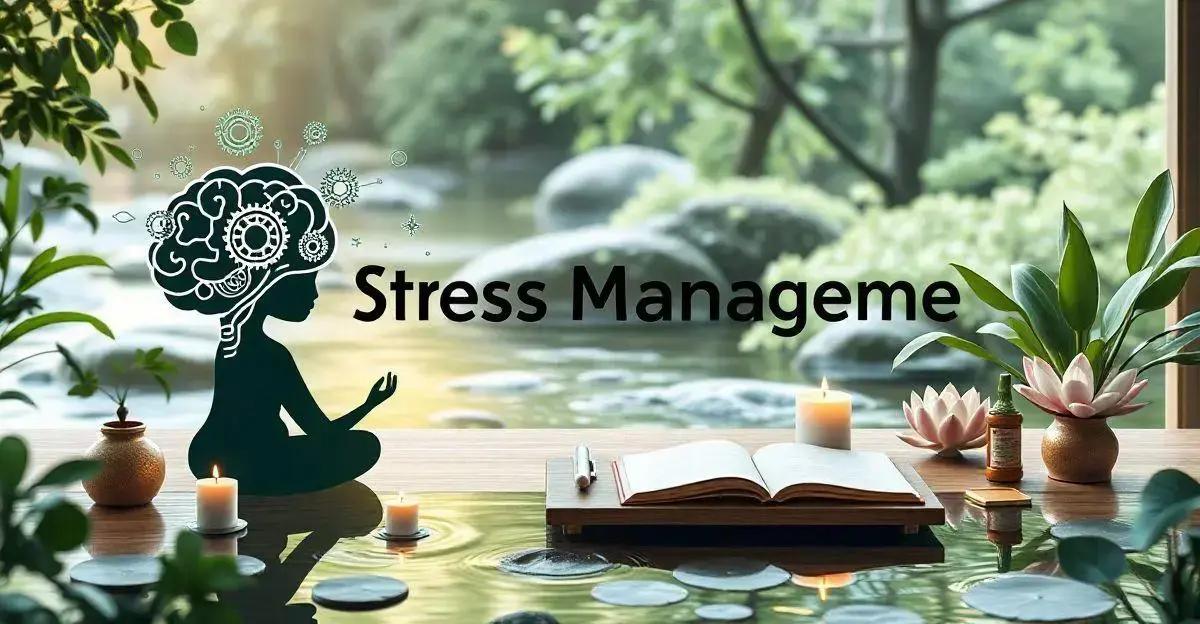Are you tired of feeling overwhelmed and anxious? Do you struggle to manage stress and find your way back to a sense of calm and control? You’re not alone. Stress is a common experience that can affect anyone, regardless of age, gender, or background.
But the good news is that stress management is possible, and with the right strategies, you can learn to overcome stress and anxiety and regain control of your life.
Understanding Stress Management: The Basics
Stress management is a vital aspect of maintaining overall well-being, as it can have significant effects on both mental and physical health.
Chronic stress can lead to a range of issues, including anxiety, depression, and even physical disorders like hypertension and insomnia.
Understanding the mechanisms of stress and its impact on the body is crucial for developing effective stress management strategies.
Recognizing the Signs of Stress
By recognizing the signs and symptoms of stress, individuals can take proactive measures to mitigate its effects and adopt healthier habits to improve their overall quality of life.
The Science Behind Stress Management

The science behind stress management is built upon a thorough understanding of the physiological and psychological processes that occur when we experience stress. When we perceive a threat, our body’s fight-or-flight response is triggered, releasing stress hormones like cortisol and adrenaline. This response is meant to be temporary, but in today’s fast-paced world, chronic stress has become a norm.
Chronic stress can lead to a range of negative effects, including anxiety, depression, and burnout. By understanding the science behind stress management, individuals can develop effective coping mechanisms to mitigate the negative impacts of stress and improve their overall well-being.
Practical Tips for Effective Stress Management
Effective stress management requires a combination of healthy habits and coping mechanisms. One of the most important steps is to prioritize self-care, including getting enough sleep, exercising regularly, and eating a balanced diet.
Additionally, individuals can try relaxation techniques such as meditation, deep breathing, and yoga to reduce stress levels. It is also essential to set realistic goals and prioritize tasks to avoid feeling overwhelmed.
Seeking Support
Furthermore, seeking support from friends, family, or a mental health professional can provide a sense of security and help individuals develop healthy coping strategies.
By incorporating these practical tips into daily life, individuals can better manage stress and improve their overall well-being.
Stress Management Techniques for Busy Lives

Stress management techniques for busy lives involve adapting to the demands of modern life while maintaining a sense of balance and well-being.
One effective approach is to prioritize tasks, focusing on the most critical ones first and delegating or eliminating less important ones.
Additionally, setting realistic goals and establishing a daily routine can help individuals stay on track and manage their time effectively.
Another crucial aspect is taking regular breaks and engaging in activities that bring joy and relaxation, such as reading, listening to music, or spending time with loved ones.
By incorporating these stress management techniques into daily life, busy individuals can reduce stress levels, improve their overall well-being, and maintain a sense of calm and control.
The Benefits of Stress Management for Mental and Physical Health
The benefits of stress management extend far beyond just feeling more relaxed and calm.
Chronic stress has been linked to a range of serious mental and physical health issues, including anxiety disorders, depression, cardiovascular disease, and a weakened immune system.
By learning effective stress management techniques, individuals can reduce their risk of developing these conditions and improve their overall health and well-being.
Additional Benefits
In addition, stress management can also improve sleep quality, boost mood, and increase energy levels, making it an essential component of a healthy lifestyle.
By prioritizing stress management, individuals can take control of their mental and physical health and live a happier, healthier life.
Conclusion: Taking Control of Your Stress Management

By now, you’ve learned the basics of stress management, the science behind it, and practical tips for effective stress management. You’ve also discovered stress management techniques that can help you cope with busy lives and the benefits of stress management for your mental and physical health.
Now, it’s time to take control of your stress management. Start by identifying your personal stressors and develop a plan to manage them. Prioritize self-care, engage in stress-reducing activities, and seek support from loved ones.
Remember
stress management is a journey, and it’s okay to take it one step at a time. With patience, persistence, and the right strategies, you can take control of your stress management and live a happier, healthier life.
FAQ – Frequently Asked Questions about Stress Management
What is stress management?
Stress management is the practice of learning and using techniques to help manage stress and its effects on the body and mind.
What are some common causes of stress?
Common causes of stress include work-related issues, financial problems, relationship issues, and major life changes.
How can I reduce my stress levels?
Reducing stress levels can be achieved through techniques such as meditation, deep breathing, exercise, and prioritizing self-care.
What are some effective stress management techniques?
Effective stress management techniques include cognitive-behavioral therapy, relaxation techniques, and mindfulness-based stress reduction.
How can I prioritize my mental health during stressful times?
Prioritizing mental health during stressful times involves setting boundaries, practicing self-care, and seeking support from loved ones and mental health professionals.
What are some common signs of stress?
Common signs of stress include headaches, fatigue, irritability, and difficulty sleeping.
How can I manage stress in my daily life?
Managing stress in daily life involves setting realistic goals, prioritizing tasks, and taking regular breaks to reduce stress and increase productivity.
